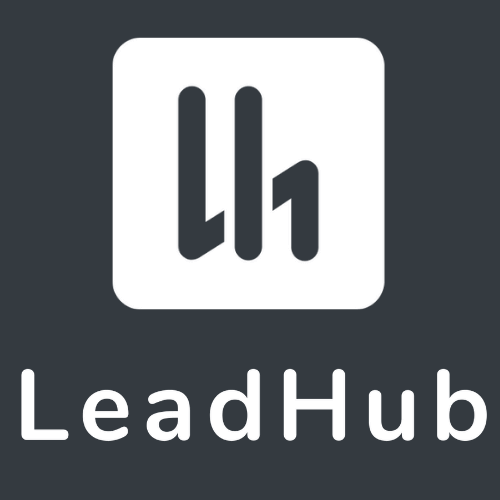Description

Velocify

LeadPath

LeadHub
Comprehensive Overview: Velocify vs LeadPath vs LeadHub
Velocify, LeadPath, and LeadHub are all software tools focused on lead management and sales automation. They cater to businesses looking to optimize their sales processes, improve lead conversion, and streamline customer relationship management. Here’s an overview of each, focusing on their primary functions, target markets, market share, user base, and key differentiating factors:
Velocify
a) Primary Functions and Target Markets
- Primary Functions: Velocify is a robust sales CRM and lead management platform. It offers features like lead distribution, automated communication, task prioritization, and advanced reporting analytics. It integrates with multiple CRM systems, marketing automation tools, and can automate workflows to improve sales conversion.
- Target Markets: Velocify primarily targets medium to large enterprises in sectors like mortgage lending, insurance, higher education, and other verticals that rely heavily on lead-driven sales processes.
b) Market Share and User Base
- Velocify has a significant market share, especially in sectors like mortgage lending and insurance, where there is a high volume of leads and need for automated processes. It has a broad user base that includes some of the leading companies in these sectors.
c) Key Differentiating Factors
- Integration Capabilities: Velocify stands out for its seamless integration with other Salesforce products and various third-party applications.
- Specialization: Its specialization in industries with complex lead processes like mortgage and insurance provides tailored features that cater specifically to these sectors.
- Advanced Automation: Its automation capabilities are among the most advanced, offering detailed analytics and real-time data-driven decision-making.
LeadPath
a) Primary Functions and Target Markets
- Primary Functions: LeadPath is designed for lead capture, management, and nurturing. It provides functionalities like lead scoring, nurturing, real-time reporting, and a customizable dashboard to monitor pipeline activities.
- Target Markets: LeadPath is suitable for small to mid-sized businesses across various industries looking for a straightforward, yet effective lead management system.
b) Market Share and User Base
- LeadPath holds a modest market share compared to Velocify, with a niche following among small to medium enterprises. It appeals to businesses that require essential lead management functionality without the complexity of more extensive systems.
c) Key Differentiating Factors
- Ease of Use: LeadPath is recognized for its user-friendly interface, making it accessible to businesses without extensive IT resources.
- Cost-Effectiveness: It provides a cost-effective solution for businesses not needing the extensive features of larger platforms like Velocify.
- Customization: Although it may lack some high-end features, its high degree of customizability is notable for adapting to varied business needs.
LeadHub
a) Primary Functions and Target Markets
- Primary Functions: LeadHub offers functionalities for comprehensive lead tracking, lead scoring, automated follow-ups, and performance analytics. It is also equipped with marketing features like campaign tracking and email marketing integrations.
- Target Markets: Targeting small to medium-sized enterprises, LeadHub aims at businesses that require an amalgamated marketing and lead management tool.
b) Market Share and User Base
- LeadHub has a smaller market share compared to both Velocify and LeadPath but is growing in popularity among SMEs looking for integrated marketing solutions. Its user base remains smaller but is quite dedicated.
c) Key Differentiating Factors
- Marketing Integration: LeadHub combines lead management with marketing capabilities, offering tools for campaign management and email marketing within the same platform.
- Simplicity and Flexibility: Like LeadPath, LeadHub also focuses on providing a simple yet flexible tool that accommodates basic to advanced lead management needs.
- Scalability: It offers scalable solutions appealing to businesses planning growth but wanting to keep marketing and sales tightly integrated.
Overall, the choice between these platforms often comes down to the business size, specific industry requirements, and desired level of integration and complexity in lead management processes. Each has distinct features that might suit different business needs and markets.
Contact Info

Year founded :
2004
+1 844-327-3296
Not Available
United States
Not Available

Year founded :
2015
+1 312-219-9660
Not Available
United States
http://www.linkedin.com/company/leadpath

Year founded :
2011
Not Available
Not Available
United States
http://www.linkedin.com/company/lead-hub
Feature Similarity Breakdown: Velocify, LeadPath, LeadHub
To provide a comprehensive feature similarity breakdown for Velocify, LeadPath, and LeadHub, let's examine each of the requested aspects in detail.
a) Core Features in Common
-
Lead Management:
- All three platforms offer robust lead management capabilities, allowing businesses to capture, track, and manage leads throughout the sales process.
-
CRM Integration:
- Velocify, LeadPath, and LeadHub all support integrations with popular CRM systems like Salesforce. This helps streamline the workflow and maintain consistency in data management.
-
Automated Lead Distribution:
- Each of these platforms includes features for automating the distribution of leads to sales representatives based on predefined rules.
-
Reporting and Analytics:
- Comprehensive reporting and analytics tools are common across these solutions, providing insights into lead performance and sales activities.
-
Email Marketing:
- Basic email marketing functionalities, such as drip campaigns and automated responses, are included in all three platforms.
-
Lead Scoring:
- They all offer lead scoring capabilities to prioritize leads based on their likelihood to convert.
b) User Interface Comparisons
-
Velocify:
- Velocify's interface is designed with a focus on sales acceleration. It provides a clean layout with easy accessibility to dashboards and reporting features. Workflow management tools are quite intuitive.
-
LeadPath:
- LeadPath offers a straightforward and user-friendly interface. The emphasis is on simplicity and ease of navigation, which is appealing to users who need to quickly manage and track leads without dealing with a steep learning curve.
-
LeadHub:
- LeadHub's interface strikes a balance between rich features and user accessibility. It often includes more customizable options, which can be beneficial for users who need specific configurations but may require a bit more setup time.
c) Unique Features
-
Velocify:
- Sales Dialer: Velocify includes a powerful sales dialer feature, which enhances outbound sales calls by integrating them directly into the sales process.
- Advanced Workflow Automation: Velocify offers advanced workflows that allow sales teams to automate complex sales processes more efficiently.
-
LeadPath:
- Real-Time Lead Purchasing: LeadPath allows for real-time lead purchasing, a unique feature that caters specifically to businesses that buy and manage a large volume of third-party leads.
- Custom Lead Forms: LeadPath offers an exceptional level of customization in lead capture forms, allowing users to tailor them to very specific needs.
-
LeadHub:
- Comprehensive Lead Nurturing: LeadHub stands out with its more comprehensive lead nurturing capabilities, integrating various touchpoints and channels into cohesive marketing and sales efforts.
- AI-Powered Recommendations: LeadHub often includes AI-driven insights that suggest next steps or highlight leads with the greatest potential for conversion.
These platforms, while sharing core functionalities integral to lead management, differentiate themselves through unique features and user interface designs tailored to varied business needs. In choosing the right platform, businesses should consider the specific features that align best with their operational strategies and user preferences.
Features

Not Available

Not Available

Not Available
Best Fit Use Cases: Velocify, LeadPath, LeadHub
When evaluating Velocify, LeadPath, and LeadHub, it's important to consider their unique strengths and how they align with specific business needs. Here's a breakdown of how each might be best suited for different types of businesses or projects:
a) Velocify
Best Fit Use Cases:
- Sales Teams Focused on Speed and Efficiency: Velocify is excellent for organizations that prioritize rapid lead processing and follow-up. Its core strength lies in automating and optimizing sales processes to increase conversions.
- Companies with High Lead Volume: Businesses receiving a large number of inbound leads can benefit from Velocify's automated lead distribution and prioritization features, ensuring that no lead is left unattended.
- Complex Sales Environments: Organizations with multi-step sales processes and a large sales team can leverage Velocify's robust CRM functionalities to better manage lead pipelines and activities.
Industry/Size Fit:
- Large Enterprises and Mid-sized Businesses: Velocify is scalable and offers comprehensive features that suit larger sales operations.
- Industries like Real Estate, Automotive, and Financial Services: These sectors benefit from Velocify’s focus on speed and process optimization, crucial in high-competition markets.
b) LeadPath
Preferred Scenarios:
- Startups and Small Businesses: LeadPath's simplicity and ease of use make it ideal for smaller companies that need a straightforward lead management solution without unnecessary complexity.
- Niche or Specific Project Campaigns: Companies that run targeted campaigns or projects with specific lead capture needs can leverage LeadPath’s flexible form and landing page builders.
- Businesses Needing Quick Setup: LeadPath is suitable for businesses needing to start capturing and managing leads with minimal setup time.
Industry/Size Fit:
- Small to Medium Enterprises (SMEs): Its tools are particularly suited for businesses that are expanding their lead generation efforts but do not need a fully-featured CRM platform.
- Industries like Startups, Agencies, and E-commerce: These industries benefit from LeadPath's customizable lead capture mechanisms which can be tailored to specific campaigns.
c) LeadHub
Consideration Scenarios:
- Companies Focused on Integration and Communication: LeadHub might be a strong fit for businesses that need seamless integration with existing CRM and marketing tools, and prioritize centralized communication with leads.
- Firms Needing Strong Analytical Tools: Businesses that need detailed analytics and reporting to track lead performance and sales activities may find LeadHub's analytics features beneficial.
- Organizations Leveraging Content Marketing: Those employing strong content marketing strategies can benefit from LeadHub’s capabilities in tracking lead interactions with content across various channels.
Industry/Size Fit:
- Medium to Large Businesses: Especially those that have established CRM systems and seek to enhance their lead management capabilities with better data insights and communication tools.
- Industries like Technology, SaaS, and Professional Services: These sectors benefit from robust data analytics and integration capabilities, crucial for businesses relying heavily on digital marketing and personalized sales approaches.
Summary
Each of these products serves different types of businesses with varied focus areas. Velocify is best suited for larger organizations with complex sales processes, LeadPath is ideal for smaller businesses or those with specific campaign needs, and LeadHub is appropriate for businesses prioritizing integration and analytics. The choice among them should be guided by the specific needs of the business, such as speed, simplicity, or data-driven insights.
Pricing

Pricing Not Available

Pricing Not Available

Pricing Not Available
Metrics History
Metrics History
Comparing teamSize across companies
Conclusion & Final Verdict: Velocify vs LeadPath vs LeadHub
When comparing Velocify, LeadPath, and LeadHub, several factors come into play, including features, pricing, integration capabilities, ease of use, and customer support. Here is a comprehensive conclusion and final verdict on these products:
Conclusion and Final Verdict
a) Best Overall Value
Considering all factors, Velocify appears to offer the best overall value. It provides a comprehensive set of features tailored for lead management and sales optimization, strong integration capabilities, and a user-friendly interface. Despite potentially higher pricing, its robust functionality and effectiveness in driving sales processes make it appealing.
b) Pros and Cons
-
Velocify
- Pros:
- Advanced lead scoring and distribution features.
- Seamless CRM integration, particularly with Salesforce.
- Strong automation capabilities which enhance productivity.
- Insightful reporting and analytics.
- Cons:
- Higher cost compared to some alternatives.
- May require a learning curve for full utilization.
- Overwhelming for small businesses with simpler needs.
- Pros:
-
LeadPath
- Pros:
- Intuitive user interface and easy setup.
- Affordable pricing with flexible plans.
- Strong customization options.
- Cons:
- Limited advanced features compared to competitors.
- Scalability issues for larger enterprises.
- Lesser known brand with potentially smaller support community.
- Pros:
-
LeadHub
- Pros:
- Excellent customer support.
- Emphasis on collaborative features and team communication.
- Data-driven insights and analytics.
- Cons:
- Limited integrations compared to larger platforms.
- May lack certain niche features required by specific industries.
- Can be cost-prohibitive for startups and small businesses.
- Pros:
c) Recommendations for Users
-
Small to Mid-sized Businesses: LeadPath could be the most viable option due to its affordability and flexibility if you do not need highly advanced features.
-
Large Enterprises: Velocify is recommended for businesses requiring robust functionality and extensive integration, particularly those using Salesforce.
-
Collaborative Teams: LeadHub could be ideal for teams emphasizing communication and collaborative features, particularly if customer support is a priority.
Ultimately, users should evaluate their specific business needs, budget constraints, and existing technology stack before deciding. A trial period for each option, where available, may offer practical insights and aid in making an informed decision.